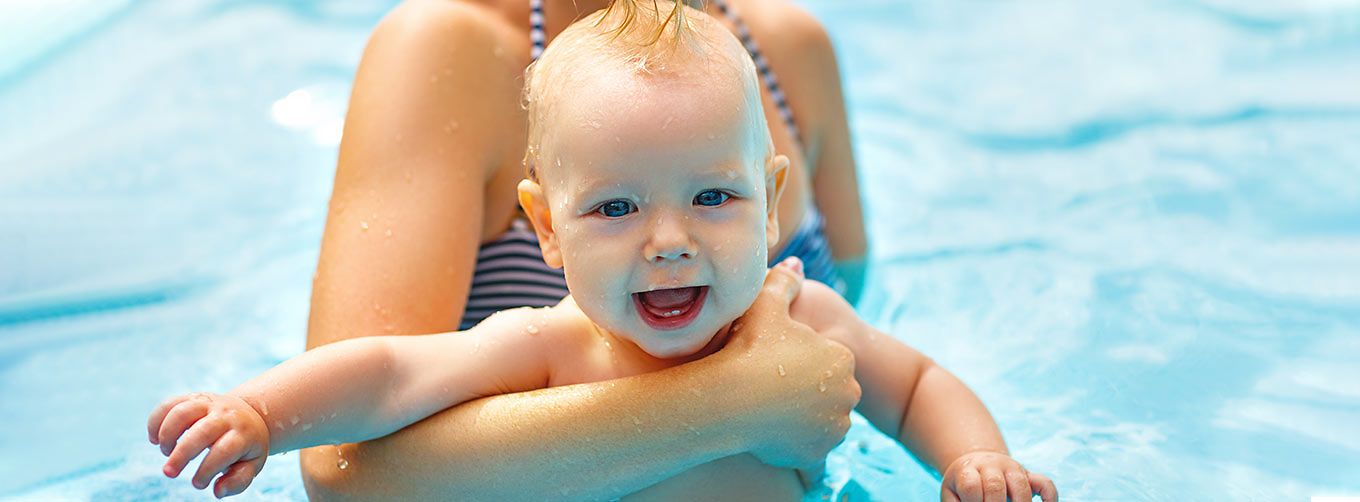It’s splashy fun, but could swimming have an even more significant pay-off for babies? Our experts explain the benefits of getting your baby in the water early

After nine months spent floating in the womb, babies are surely born to swim. Yet fast-forward a decade and according to one report some 40% of children leave primary school without being able to manage a length of the pool. So how can we nurture a baby’s primitive instinct to survive in water?
New mum Ruth Ellis found the answer when she started going to swimming classes with her daughter Elsie at just three months. “My husband Martin had a phobia of water as a child, so he was determined that she should learn to swim,” she says. “It was scary at first, dipping your little one under water, but Elsie wasn’t fazed! During the first lesson, we did it for just a second, gradually building up the time she was submerged.”
Keep them warm
Look for a nice warm baby pool to get your baby started. “For children under 12 weeks, a temperature of around 32˚C is important,” says Boots health visitor Angela Davy. “Older babies don’t need it quite that warm, but it helps them get used to the sensation if it feels like a bath. And stick to short 10-minute sessions, gradually building up to about 30 minutes.” Babies lose heat more quickly than adults, so before they start to shiver, get them out of the pool and snuggle them in a warm towel.
Once they’re in, the idea is to hone their survival instincts, so they learn not to panic under water, as well as how to get themselves out of difficulty if they ever do fall in. “Elsie’s only five months now and she’s beginning to learn how to kick and move herself forward to reach out for the side of the pool,” says Ruth. Elsie, like pretty much all newborns, proved to be a natural water baby.
“They’ll instinctively hold their breath under the water and kick their arms and legs,” explains Dr Martin Ward Platt, consultant pediatrician and author of The Wonder Years (Carroll & Brown Publishers Limited). “It’s a protective reflex that wears off between six and 18 months so the sooner you introduce your child to the water, the more at ease they’re likely to be.”
Calming effects
If you’re still unconvinced (after all, they look teeny-tiny in the bath, let alone in a pool!), it’s worth knowing that babies are wired to love water. “It supports the body and massages the skin, which can have a calming effect on little ones,” says Caroline Sparks, co-founder of Turtle Tots swimming school.
Beyond building water confidence, there may be other benefits, too: “parents always tell me how well their little ones sleep after a swimming session,” says Caroline. In other words, regular trips to the pool could mean a good night’s sleep – for everybody. Now there’s a reason to dig out the cozy!